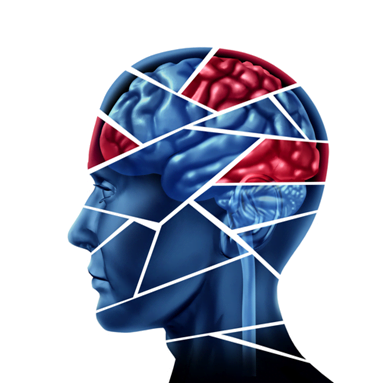The High Cost of Brain Disorders and Diseases
Neurological conditions like traumatic brain injuries are costing the U.S. economy $1.5 trillion annually (8.8 percent of the GDP), according to a recent analysis from the Information Technology and Innovation Foundation (ITIF), a science and technology policy think tank.The ITIF is urging policymakers to conduct federal research into brain diseases and disorders, not only to counter the financial burden the country is experiencing, but also to combat the significant human costs of brain diseases.

The Impact of a TBI
Funding innovation into the diagnosis, treatment, and cures for neurodegenerative diseases, brain conditions, and psychiatric disorders is important health-wise but also economically. People with mental and neurological disorders are compromised on a regular if not daily basis, and often rendered incapable of doing their daily work because of their conditions. Reduced workforce participation, in combination with treatment needs and costs like social services, is staggering.
Putting money into research could not only improve the health of sufferers of brain diseases, but – as a direct result – boost the economy. The costs of research would be outweighed by economic gains. Over 50 million American adults, according to the ITIF report, have suffered a brain disease or disorder over the last year. This could have been caused by an auto accident, a fall, aging, or their genetic likelihood of developing a psychiatric disorder.
A TBI can also lead to further mental instability, particularly depression and anxiety, and even substance abuse. TBIs are not always easy to diagnose and take great patience and understanding to treat and correct. Some sufferers experience the symptoms of a TBI for months, years, and even for a lifetime. Not only is their ability to work compromised, but their ability to function normally – at work, in relationships, socially, and more – as they once did has been dramatically altered. There are indirect costs to the economy when crime, homelessness, and suicide rates go up because of the side effects, lack of treatment, and inability to conquer brain diseases.
Changing the Way We Look at Brain Disease
For many brain disorders, there is a direct physical component that can be treated by biopharmaceutical innovation. But it is often the symptoms that are treated rather than the causes of a condition. The ITIF report proposes policy recommendations to help spur discovery of new treatments, including expanding NIH funding and encouraging biopharmaceutical companies to invest in R&D.
“In an era of budget shortfalls and a growing national debt, it is tempting for federal policymakers to reduce funding for mental health research while imposing price controls, weakening intellectual property protections, and enacting other measures to reduce spending on drugs,” said ITIF President Robert D. Atkinson, co-author of the report. “But doing so would be penny wise and pound foolish: It would modestly improve short-term budget conditions but would reduce the pace of innovation related to mental and neurological health and ultimately mean more human suffering and slower rates of economic growth.”
David Christensen is a brain injury expert at Christensen Law in Southfield, Michigan. He represents TBI victims resulting from car crashes to make sure their medical needs are covered. If you have suffered a brain injury, contact Christensen Law today for a free consultation.